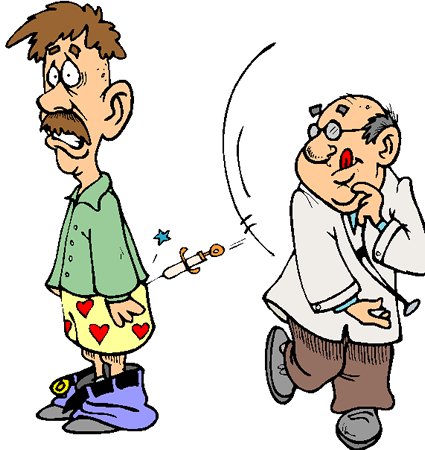Rewarding Medicine
and the Delusional Illusion of Competence
I was given to understand that the way economic reciprocity works in our system is that one pays for goods and services perceived as being of value to the consumer.
The very idea of feeling obligated to pay for something that "might work . . . but we're not sure . . . and then again it might kill you . . . " points to a kind of delusional insanity that is experienced in varying degrees by every single person in our society.
The fact that we think its 'okay' to allow doctors and those working in the mainstream medical industry to 'try stuff out' on us -- much of it based on unsubstantiated pseudo science -- and then willingly pay these same individuals ungodly amounts of money for reasons we were never really clear about, even if the service may even have resulted in the death of a loved one, is a marvelous example of a special kind of delusional economic insanity.
Let's be honest, would you happily pay for goods and services that were never actually delivered?
If we are sincere about wanting to see some real, substantive upgrades to the way in which medicine is being practiced, then consider this for a moment: what if doctors were not paid when they provided the patient with nothing of real value, and penalized when they harmed the patient?
Here's what I think would happen: a whole bunch of doctors would quit. Universities, pharmaceutical labs, and other versions of medical research centers would scurry to the front and attempt to convince those in charge and legislators (most of whom they've already bought and paid for) that not paying doctors and ancillary service/product providers regardless of outcome is a bad idea.
But, by some miracle, let's say our new imaginary directive holds and medicine is no longer compensated for products and services of little or no value to the patient. As I've said, I think that doctors heavily vested in the old system would flee, but I can also see the vacuum left being filled by a new breed of doctor. This new breed of doctor also wants to get paid, so, driven by the new guidelines, he or she would immediately look for a broader spectrum of remediation solutions, including those available in alternative medicine, and will patently reject many of the pharmaceutical solutions now being shoved down the throat of unwitting patients. Just a natural marketplace reaction, you understand, nothing out of the ordinary.
Something else guaranteed to happen: preventative, healthy-lifestyle medicine would explode. Doctors would take on a new role, one heretofore assiduously avoided, that of preventative healthcare practitioner. We would most certainly pay doctors to keep us healthy. And when we got sick, they would be paid only upon the satisfactory recovery of the patient.
Why would this happen? Need you ask? Why, economics! No service/product. No pay. This is how the free marketplace is supposed to work. We go to the doctor because we want to be healthy. We don't pay him or her to lecture us about what we're suffering from. We're there because they've represented themselves, through the media over a long period of time, as being the end-all remediation center for disease. They've been so successful at this smoke screen that our insurance policies will only pay for mainstream medical visits - in the end, a misrepresentation, to be sure, as there are many more options out there besides allopathic. But as long as we continue to play along with this delusion, we'll continue to be victimized.
Solution? To begin with, a revamping of our perception of economics as it relates to the medical industry. Nothing of value rendered, no reward. Once this transition takes hold, the next step would be petitioning new legislation that provides guidelines about when the medical community is actually entitled to be paid for patient contact.
Until this happens, medicine can and will do as it pleases -- there will be no compelling reason to make serious attempts at finding new methodologies. Sometimes medicine can help you get better. I, for one, am happy to pay for this. But sometimes medicine's version of remediation is deadly or harmful or just plain a terrible waste of precious time. In this latter instance, don't expect me to ante up.
More and more, medicine appears to be the art of quietly removing money from a patient's pocket without disturbing the illusion of competence.


